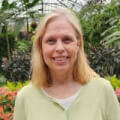Feb
28
2024
On demand
Achieving consistency in fill and finish for cell therapies
Wednesday 08:00 PST / 11:00 EST / 16:00 GMT / 17:00 CET

The fill and finish process for cell therapies is not as straightforward as it may seem. This final step represents the total sum of days to weeks of manufacturing time and thus carries the highest failure costs.
Further, despite many cell therapies requiring a single batch for a single patient, multiple bags are required for multiple dosing strategies, QC release, or reserve doses. Different storing and shipping requirements for each bag condition can also complicate the overall process – especially when DMSO is involved in cryopreservation.
In this webinar, we detail how automation can achieve consistency across these final product bags in a closed environment, reducing hands-on time and risk to the therapy's integrity.
- The common bag requirements for cell therapies
- Scale-out strategies for multiple bag requirements
- How automation can bring bag-to-bag volume consistency within 4%
- Efficiency in filling as a function of viable cell number
- Post-thaw viabilities after fill and finish
You might also like

Conducting rapid microbiological monitoring in fill-finish with biofluorescent particle counters: a collaborative case study
M Dingle, A Carwell, M J. Miller et al.
8 April
Watch

Emerging global trends and regulatory opportunities in cell therapies for cancer
K Watanabe, S Sankpal, K Kime
13 November 2024
Watch

Strategies for streamlined manufacturing and analytics in CGT development
L Mueller, S Weber, D Windgassen
1 April
Watch

Innovative approaches to lentiviral vector purification: achieving high yields and purity with a chromatography-free process
Nikki Votaw
20 August 2024
Watch

Large-scale manufacturing of allogeneic stem cell-derived NK cell therapies
Monica Raimo, Jan Spanholtz
6 August 2024
Watch


